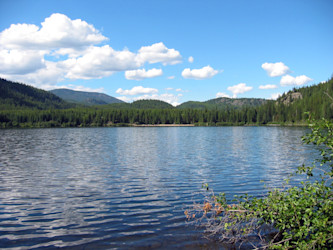What is a heat pump?
Heat pumps generate heating and hot water for your home by extracting thermal energy from the air, ground or water. Although Vaillant heat pumps require electricity to operate, they can generate up to 75% of the heating and hot water needs for your home from the environment, thus reducing your home’s total carbon emissions by as much as 50%. This protects homeowners against fluctuations in energy prices, as they become significantly less reliant on electricity. Vaillant heat pumps are compatible with radiators and work exceptionally well in homes with underfloor heating.
Key benefits of using Vaillant heat pumps
Receive a grant for installation
Quiet operation
Control your heating system remotely
Vaillant heat pumps have a long service life
Vaillant heat pumps allow you to benefit from Government incentives such as Boiler Upgrade Scheme (BUS). The scheme is available from April 2022 and depending on your eligibility, you may be able to claim up to £6,000 off the cost and installation of a Vaillant heat pump. To find out more about BUS, click here.
Vaillant heat pumps are among the quietest on the market. Because of the low noise levels, the external unit for a Vaillant heat pump can be installed even in densely populated locations such as townhouse complexes and terraced housing estates, where strict noise control rules may apply.
Compatible with the Vaillant sensoCOMFORT heating control, which allows control of multiple heating products at the same time and operates them at their most efficient using modulating technology.
Vaillant heat pumps have life expectancies of 20-30 years, making them double that of a typical boiler. All Vaillant heat pumps come with up to 7 years warranty on parts and labour.
How efficient are Vaillant heat pumps
The Vaillant heat pumps have a CoP of up to 5.2, making them highly efficient. Coefficient of Performance (COP) is used to measure the efficiency of a heat pump and it is the ratio of heat produced per unit of electricity consumed when pumping the heat. The higher the value, the more efficient the device is.
So for each kW of electricity consumed by the pump’s compressor, 5.2 kW is generated and can be used to heat your home. Given that heat pumps usually have a coefficient of 2-6, Vaillant heat pumps are on the more efficient side of the spectrum with great potential for lowering your energy bills.
Are Vaillant heat pumps a good fit for my property?
Before deciding on the type of Vaillant heat pumps most suitable for your needs, consider the following:
Is your property well insulated?
Sustainable heating and hot water generation is only possible if your home is well-insulated. Although each home is different, it is vital to know what steps you may take to reduce heat loss in your home. Considering loft insulation and double-glazing your windows is a good place to start, but consult an expert for further advice on what kind of solutions are realistic for your home.
Are you looking to replace an existing heating system, or is this the first heating system to be installed in a new home?
Replacing an old heating system will provide faster, more visible benefits due to the increased efficiency of a new system. For newly built homes, it’s worth talking to an installer about how your heat pump system will work throughout your home, including whether you want underfloor heating, as well as how to make it as efficient as possible through the use of appropriate controls.
Do you have enough space for the internal components of the system?
Heat pumps don’t work like combi boilers and all require a hot water cylinder to be installed. Depending on the size of your property you might also require a buffer tank, which will take up space as well. Therefore, there must be some space reserved for the installation of those, as they can be quite bulky, depending on the size and heating demands of your property.
Are your radiators large enough?
The flow temperature of a heat pump system is lower than that of a gas/oil boiler system. Therefore, in the radiators, a heat pump will run at 45-55°C, while a boiler will run at 60-70°C. With the lower flow temperatures, your installer will make sure your radiators are of the right size to keep your home comfortably warm. Keep in mind some of your radiators may need to be replaced with larger ones.
Types of Vaillant Heat pumps
1. Air source heat pumps

Air source heat pumps are the most popular out of all types of heat pumps. This is because they can fit in a variety of properties and are less disruptive to install than ground and water heat pumps. According to Vaillant, it will only take around 3 to 5 days to convert your home to use an air source heat pump.
Air source heat pumps collect heat from the outside air into a liquid refrigerant, which is then boosted to a higher temperature by an electric compressor. The heat is then distributed to your home’s radiators and underfloor heating. The rest can be stored in the hot water cylinder.
Vaillant offers the following air source heat pumps:
The aroTHERM
- Great fit for most properties, including large homes, as it can be installed as a cascade system of up to 7 units.
- Comes in four different power outputs (5-15 kW)
- Solid case design and anti-hydro coating for protection against corrosion
The aroTHERM Split
- Can be installed up to 20 metres away from your home
- Comes in five different heat outputs (3.5-12 kW). Heat pump outputs are sized for the heating requirement of the individual property which is why they have smaller outputs than combi boilers (which focus on hot water heating)
- Consists of an indoor wall-mounted unit and an outdoor unit, which can be free-standing or wall-mounted. The two units are connected with refrigerant pipe work.
- As external pipe work is transferring refrigerant rather than water, there is no risk of freezing in cold weather.
The aroTHERM Plus
- Combines heating and hot water in a single solution.
- Installed with the latest heat pump technology, ensuring maximum efficiency and providing particularly low global warming potential
- The uniTOWER indoor unit is only about the size of a freezer and easily fits into a utility room, making it one of the most compact heat pumps on the market.
- Offers the best convenience for hot water, ensuring enough hot water for several showers
The aroTHERM Hybrid
- The hybrid heating solution combines an aroTHERM air-to-water heat pump with a traditional boiler
- Unique triVAI technology to ensure the most efficient energy source is always used. The system switches between renewable and traditional heat sources to lower running costs.
- A great first step into a renewable and sustainable heating system for your home
2. Ground source heat pumps

Ground source Vaillant heat pumps capture thermal energy from the ground near your home and use it to heat your home. Ground source heat pumps are suitable for homes with enough land for ground arrays or a borehole system to be installed.
- Ground array
- Borehole system
A ground array is made up of several pipes installed underground. The land must be accessible to digging machinery and must be appropriate for trenching. Ground arrays take up more space than borehole systems, therefore they're best for properties with a lot of acreage. Although trenches must be dug, the end installation will be unnoticeable, and any turf may be restored or reseeded once the installation is complete.
Borehole systems are more suitable for houses that have limited land space and don’t qualify for ground arrays. Boreholes are made by digging a hole in the ground to access thermal energy that is much deeper in the earth. The deeper the hole is, the hotter the temperatures become and the more thermal energy may be absorbed.
When compared to ground arrays, boreholes require less time to drill and have less aesthetic impact on the surrounding environment. Just like ground arrays, boreholes are not visible after the installation is complete.
The flexoTHERM ground source
- Comes in five models covering 5-19 kW heating output
- A sufficiently large plot of land with vehicular access required
- Can be installed with a borehole system or ground array
3. Water source heat pumps

Water source Vaillant heat pumps work by extracting thermal energy from a nearby water source and converting that energy into heating and hot water for your home. Water source heat pumps are perfect for homeowners that have a lake, river or borehole located near their home.
A system of submerged pipes placed underground facilitates the heating process; heat energy can be successfully transferred to the heat pump itself by using an antifreeze liquid in closed-loop systems or water from the source in open-loop systems.
Although water heat pumps are the most complex to install, they outperform both air and ground source heat pumps in terms of efficiency. This is because of the consistency in water temperatures outside, regardless of weather conditions - most water sources in the UK will be between 7°C and 12°C.
FlexoTHERM water source
- Perfect for properties located near a water source
- Available in eight different power outputs (5-19 kW).
- Can be installed as a closed or open loop system. Click here to read about the difference between the two.
- Pipework systems are installed underwater, making water source pump a great option for projects that require minimal visual impact.
- Doesn’t require excessive digging or drilling for installation
How much is the Vaillant heat pump?
To buy and install a Vaillant heat pump you can expect to pay between £6,000 and £12,000. Air powered heat pumps are usually easier to install and more affordable, while water and ground source heat pumps are more complicated and require additional site preparation, so expect to pay approximately £10,000 for those. Although it is a big investment, you can enjoy significant savings on your energy bills over the next 15-20 years. Click the button below to find a renewable installer and get a free quote.
Find a renewable installer


